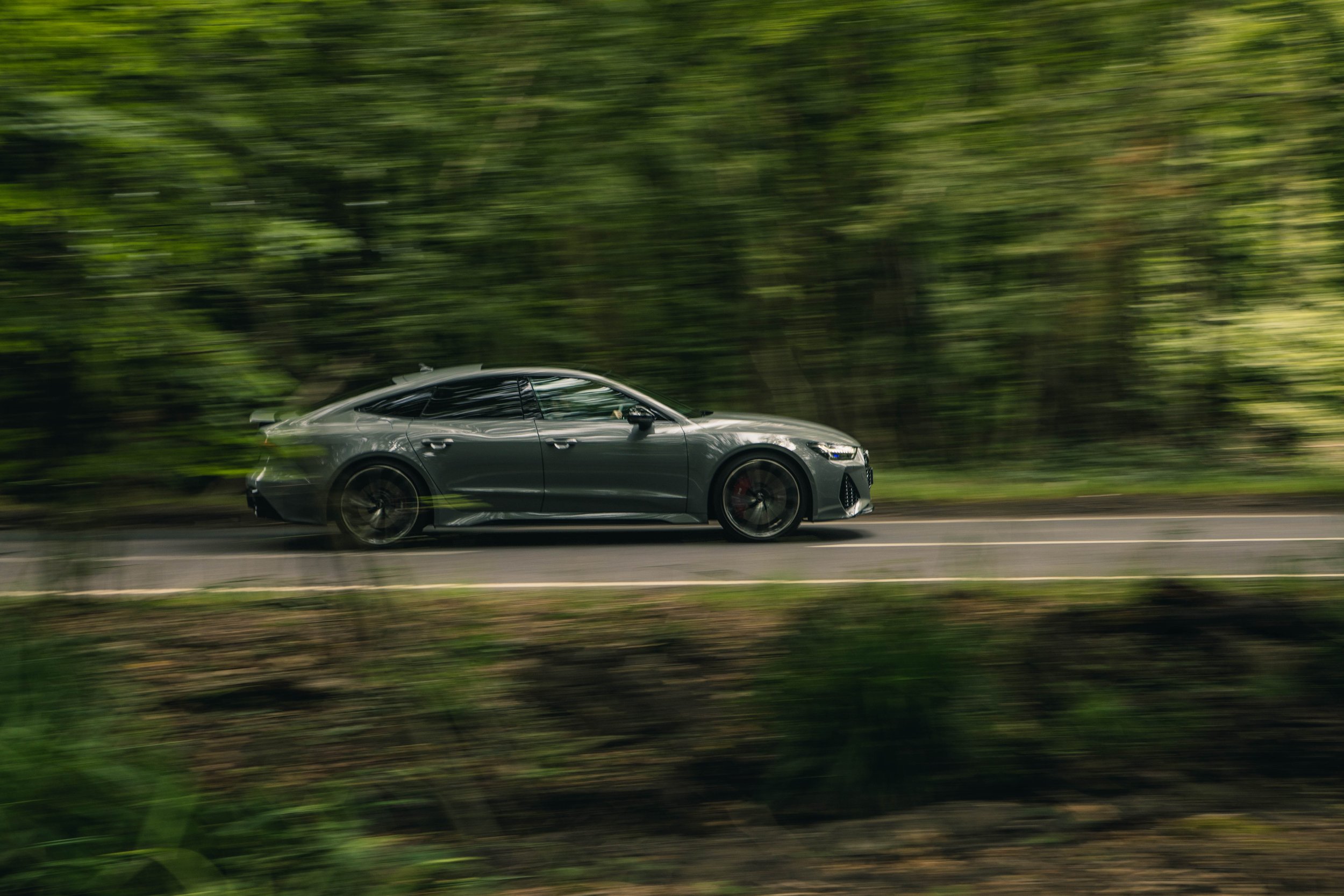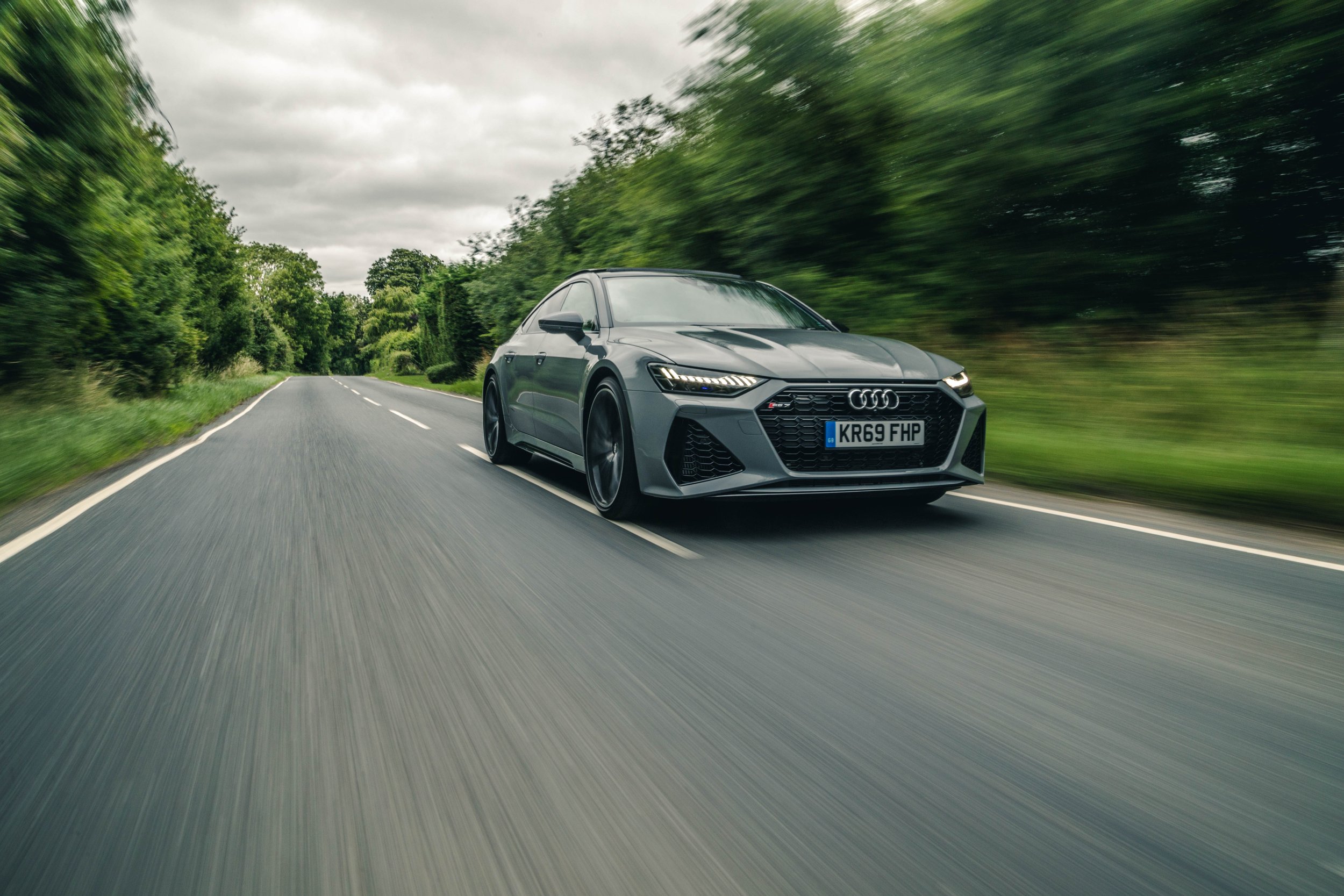
Road Test: Audi RS 7 Sportback
Road testing the Audi RS 7 Sportback to see if it has the dynamic ability to match its muscular looks and 600 horsepower V8.
WORDS: Mark Rose | PHOTOS: Dom Ginn
I never drove the old Audi RS 7, but I’ve been reliably informed that it was a bit of a blunt instrument. It looked great and went well, but it supposedly lacked driver engagement. The job of the new car then, is to take everything that was great about its predecessor and improve on it dynamically.
Leading with the aesthetics and Audi has once again pulled it out the bag. The RS 7 looks like an A7 that’s been jabbing up in the corner of the gym, with its swollen arches, huge 22-inch wheels and beefy exhaust pipes. If you want a car with real road presence, then look no further.
It also goes well. The twin-turbo 4.0 litre V8 engine produces 592bhp and 590lb ft, and sends power to all four wheels via an eight-speed automatic gearbox. The torque split is 40:60 front to rear but it can send up to 85 per cent of the power to the rear wheels thanks to a Sport Differential which comes as standard on UK-spec cars. 0-62mph happens in just 3.6 seconds with a limited top speed of 155mph, but if you pay Audi enough money, you can have the limiter removed which will increase the VMAX to 189mph. Yikes. The engine also benefits from a 48V mild-hybrid system and can deactivate four cylinders under light loads to help reduce fuel consumption. Still, be prepared for average fuel economy figures in the low 20s.
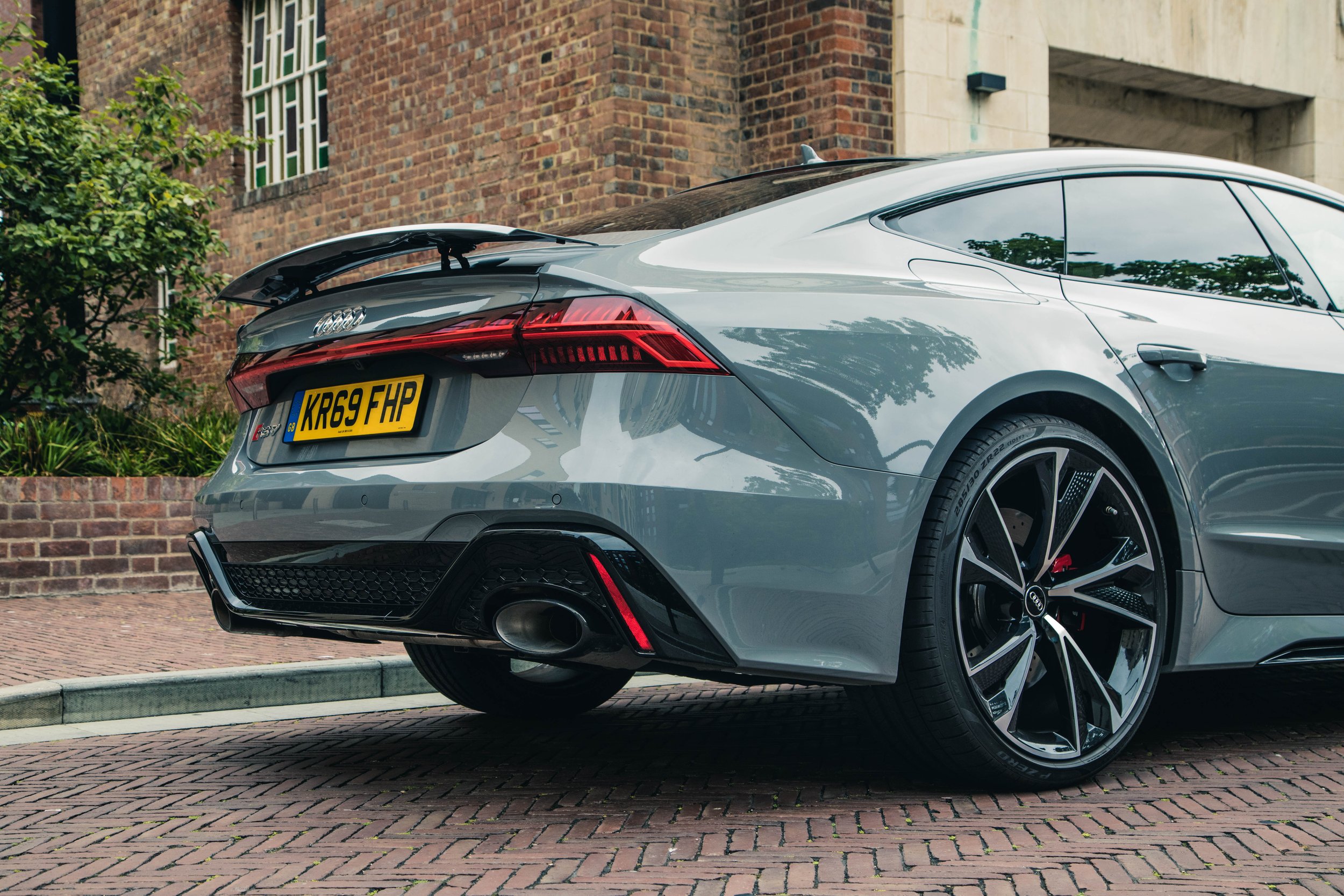
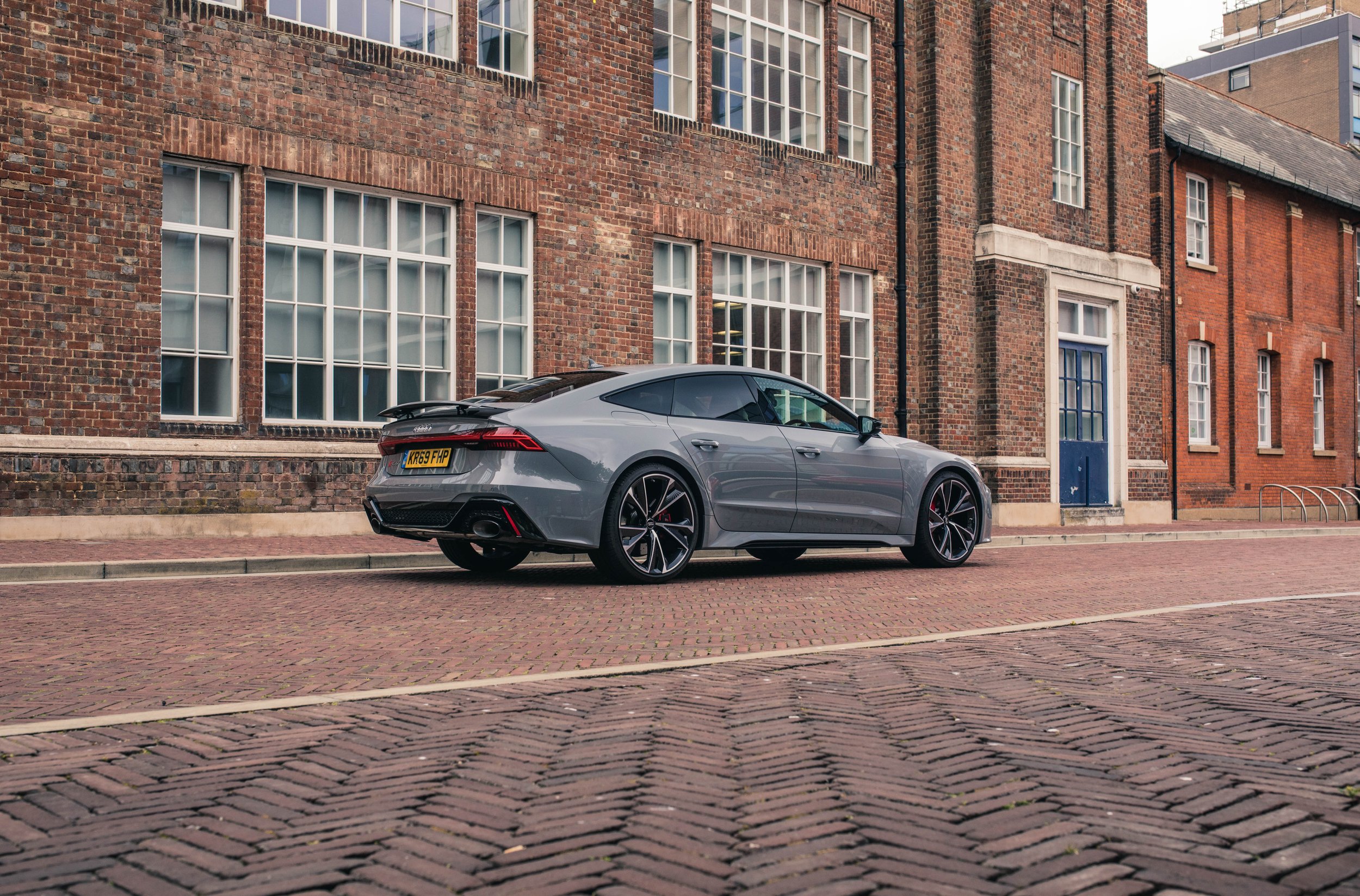
The only kink in the chain is the gearbox which is sometimes too slow to kick down when you need a sudden burst of torque. Having said that, the eight-speed auto is a fine gearbox and what it lacks in response, it makes up for when you just want something that quietly shuffles away in the background.
As with most cars in 2020, there are selectable driving modes but Audi now offer you the chance to configure how you want the car set up and then save the settings with RS1 and RS2 buttons. Here, you can choose how aggressive you’d like your throttle response, steering weight, suspension setup and exhaust noise.
To drive, this is by no means a blunt instrument, but it’s one that takes some getting used to. The first thing you notice is how alarming the performance is. On a fully open throttle it covers ground at an astonishing rate and the reserves of torque are such that you’re never left wanting for overtaking performance. Dynamically, the package is surprisingly agile for that of a car that tips the scales at a little over two tonnes. The RS 7 is one chunky boy, but adjustable suspension and rear-wheel steering go some way to masking its considerable kerbweight. Big Audis have a tendency to understeer, but the front end on the RS 7 is faithful to input thanks to wide 275-section front tyres and the aforementioned real-wheel steering which helps get the nose tucked in. Get greedy with your entry speed and it will still wash wide, but it’s not as nose-led as you would imagine. The body control is also remarkably well-managed for a car with such heft and there’s buckets of grip to lean on. Make no mistake, it’s no sports car and clever engineering can only hide so much mass, but overall, the way it barrels round corners is impressive. Needless to say, the traction you get as you exit corners is immense, but then you wouldn’t expect anything less from quattro all-wheel drive. Elsewhere, the braking performance is strong thanks to colossal discs and callipers, and there’s even an option for carbon ceramics.
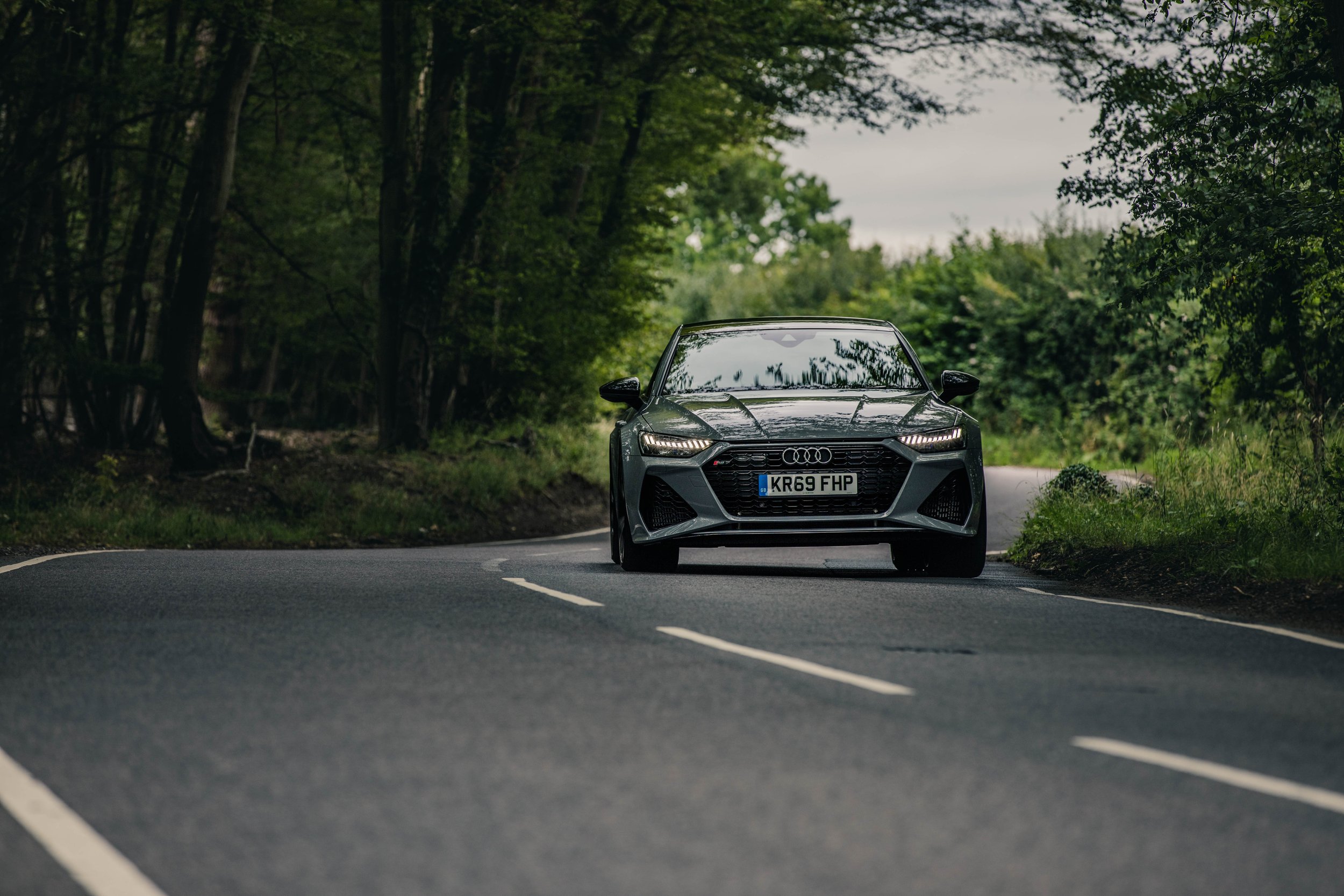
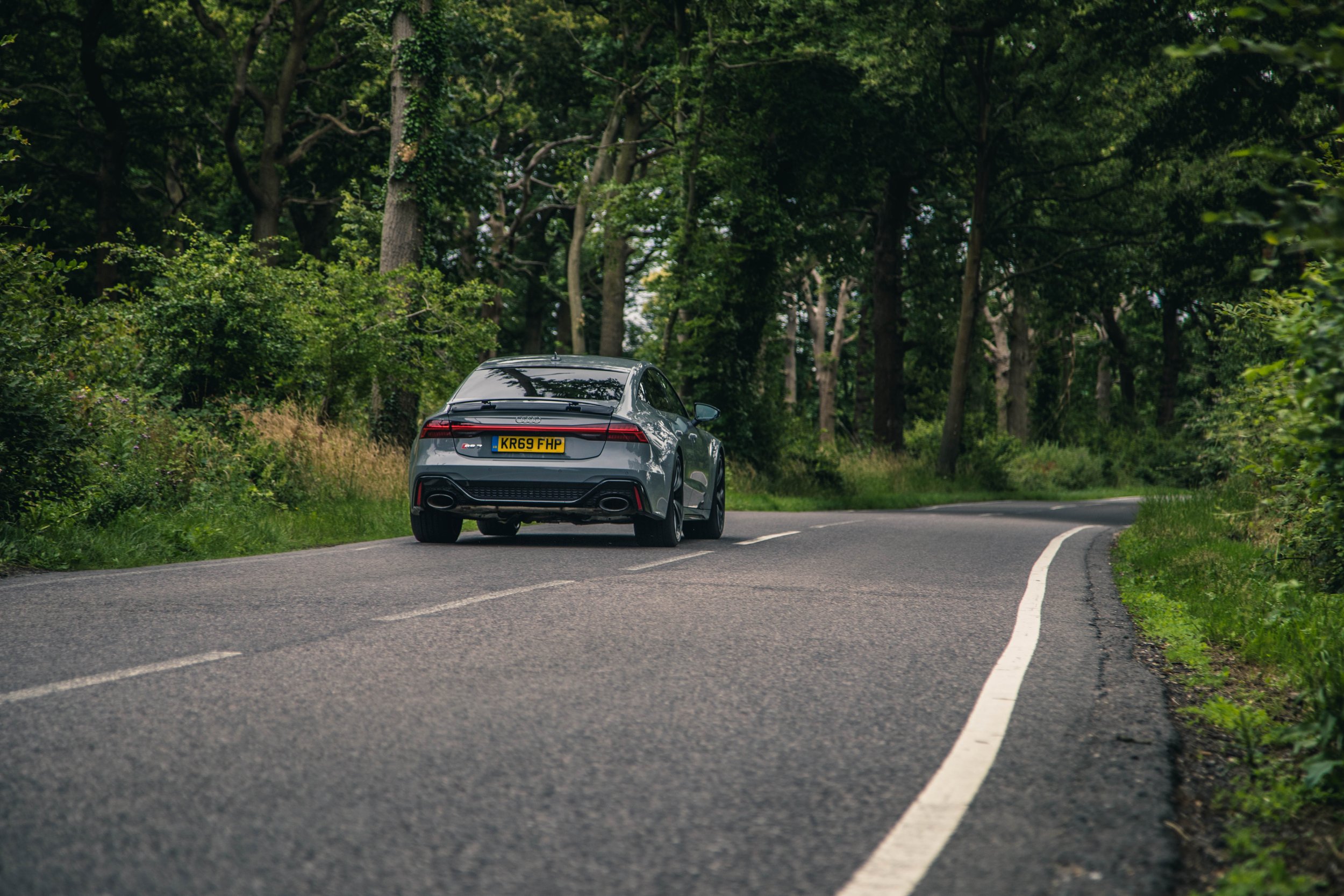
The area that requires some getting used to is the steering. Around the centre it feels too light and leaves you feeling disconnected from the front wheels and road surface. When you’re trying to the thread a circa two-metre-wide car down a country road, this disconnect can make the RS 7 feel nervous and difficult to build rhythm with.
The Audi is arguably more at home on the outside lane of a motorway. Bahnstormer is the word that springs to mind, and even though UK roads are restricted to a pedestrian 70mph, you still get a feel for what the RS 7 is capable of. If you can’t afford a Bentley Continental GT – don’t worry, most people can’t – then this is a car that could easily fill the grand tourer sized hole in your life. You may be living with a big V8 engine out front, but at a cruise you barely notice it’s there, and despite the gargantuan alloy wheels the ride is supple thanks to the standard-fit air suspension. Interestingly, it picked out fewer road imperfections than the standard A7 without air suspension that we road tested last year, which really throws the effectiveness of the system in to context.
Much of the interior from the A7 has been carried over which is no bad thing at all, and because this is an Audi Sport product, it’s been given the once over to help separate it from the lesser car’s cabin. There are a total of four screens: virtual cockpit, infotainment and climate control in the front, with a separate screen out back so rear passengers can control their own heating and cooling. Audi pioneered digital instrument binnacle technology so it’s no surprise that Virtual Cockpit continues to lead the way in this area. The graphics are clean, the system is easy to operate and you can pick your display configuration to suit. This ease of use carries over to the MMI infotainment and navigation system, and the integration of Google Maps makes it one of the best systems currently available in any car. Less easy to use is the climate control screen beneath the main display. The graphics are great but the touchscreen-only set up with haptic feedback is less tactile than physical buttons, which means you need to take your eyes fully off the road to operate it. Of course, no highly optioned Audi is complete without the customary B&O sound system. It’s excellent, but you knew that anyway.
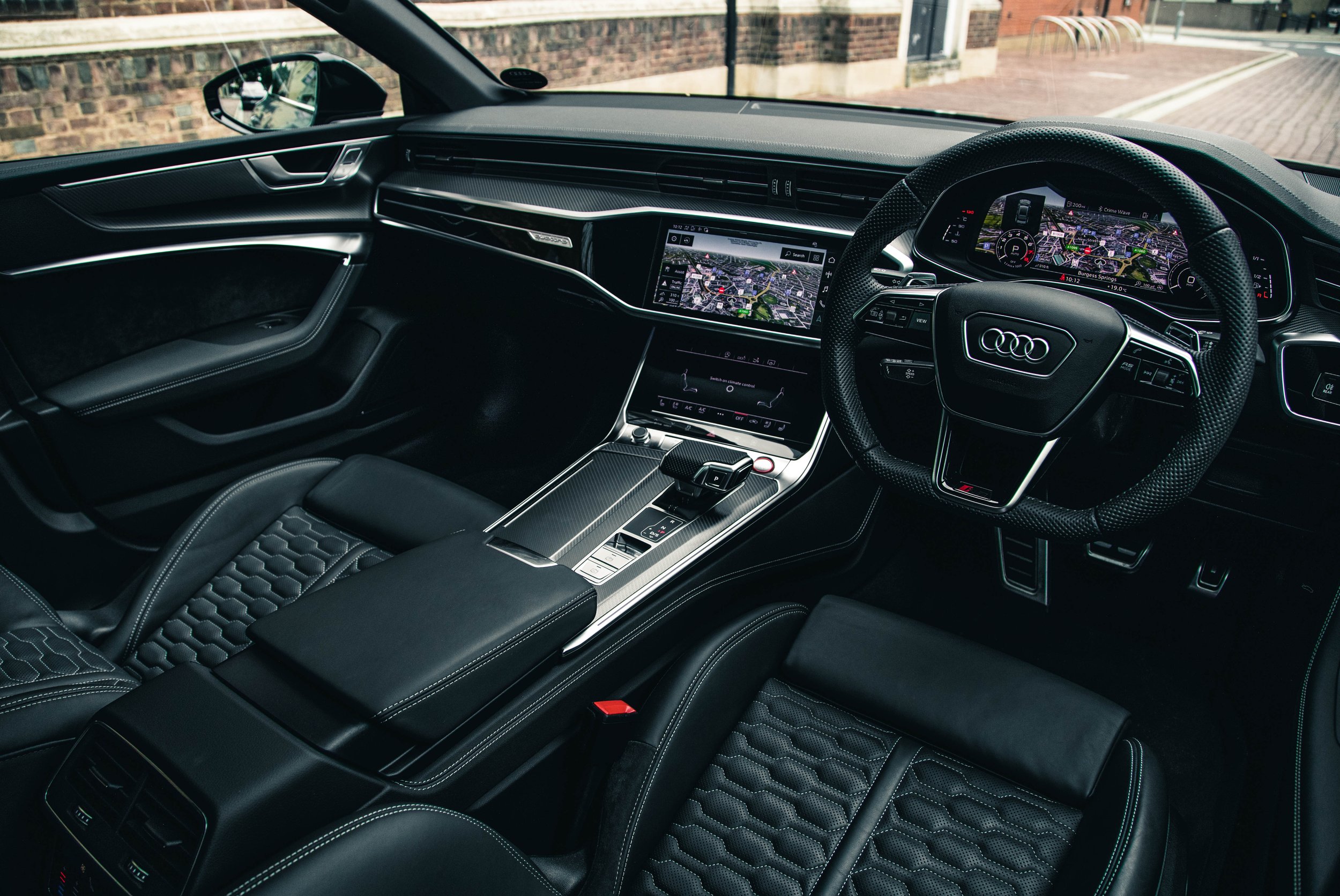
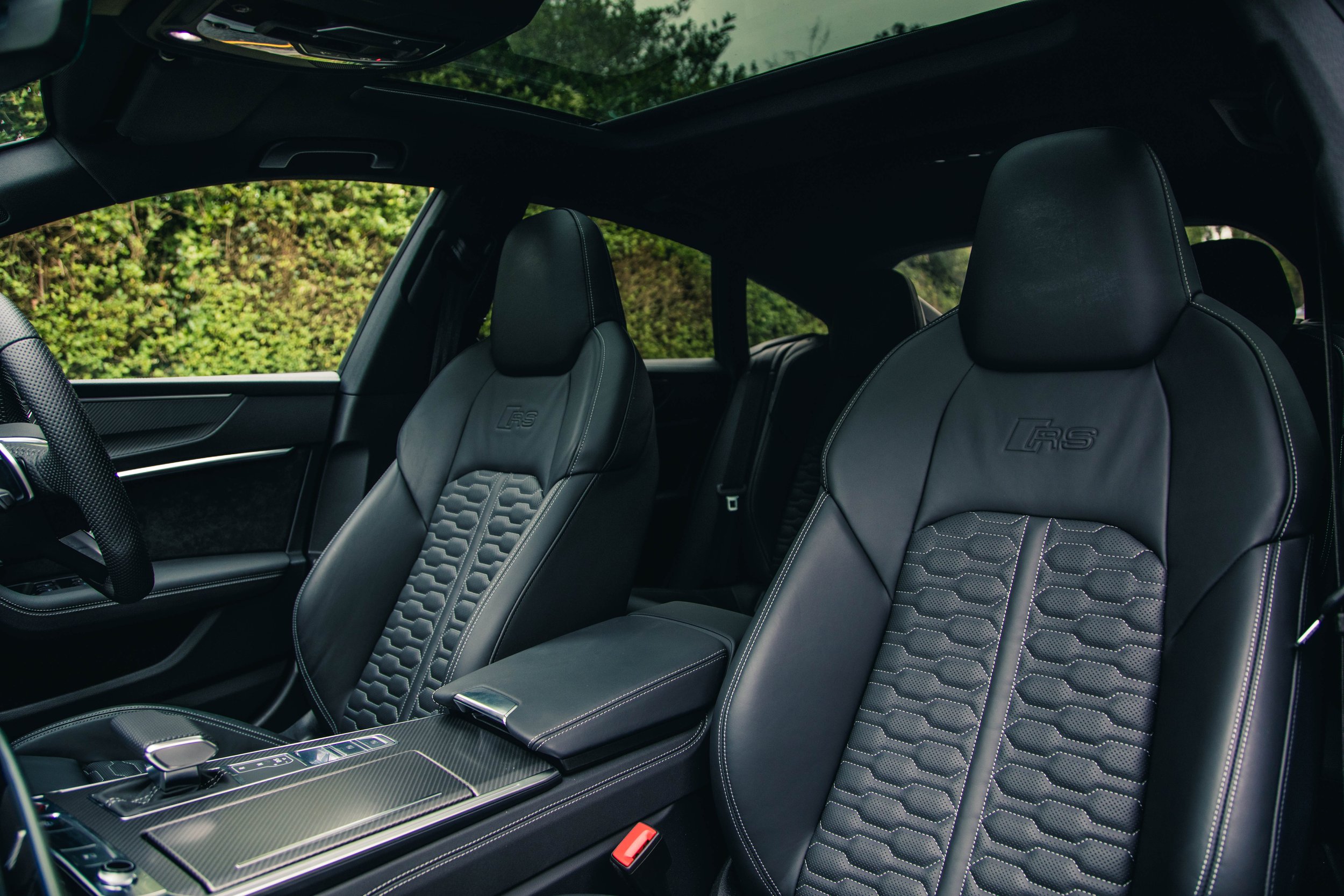
Most impressive however, is the quality of the materials on offer. Audi make some of the best interiors on sale and the RS 7 does not buck the trend. The clean and minimalist ergonomics may not be to everyone’s taste, but the black leather with contrast stitching, aluminium and Alcantara is difficult to fault. Because this is an Audi Sport model, you also get an RS-badged steering wheel, some well bolstered sports seats and plenty of faux carbon fibre, if you’re into that kind of thing. A special mention must go to the ambient strip lighting which illuminates the edges of the transmission tunnel, dash and door inserts. At night, it makes the cabin feel like a very special place to spend time in. I do however, have one minor complaint. The fit and finish was generally very good, but there was a persistent rattle that came from the middle of the dash which didn’t subside over the course of our week with the car. For a demonstrator with just over 3,000 miles on the clock it was very unusual, especially given who the manufacturer is.
The Audi RS 7 Sportback starts from £98,040, and with a smattering of options our press demo came in at £110,520. This is one of those scenarios where if you have the money to purchase such a car and the Audi is your type of thing, then go for it. At this price point there are so many different types of car available from a vast array of manufacturers, but as an all-round proposition, the RS 7 is difficult to beat. Irrespective of that, I think we should take a moment to appreciate that this relatively normal, series production family car has the straight-line poke to keep some serious performance cars honest. Ten years ago, 600hp was reserved for supercars, and now you can obtain it in an Audi which also has enough room for the kids at a fraction of the cost. Objectively, it’s mildly unnecessary, but somehow, it makes a whole lot of sense.
Engine: V8, twin-turbo
Displacement: 3,996cc
Power: 591bhp @ 6,250rpm
Torque: 590lb ft @ 4,500rpm
Transmission: 8-speed auto, AWD
0-62mph: 3.6 secs
VMAX: 155mph
Kerbweight: 2,065kg
Price: £121,105+ (Updated model price)
Technical Specifications
8/10
Verdict & Rating
“The RS 7 looks like an A7 that’s been jabbing up in the corner of the gym”
